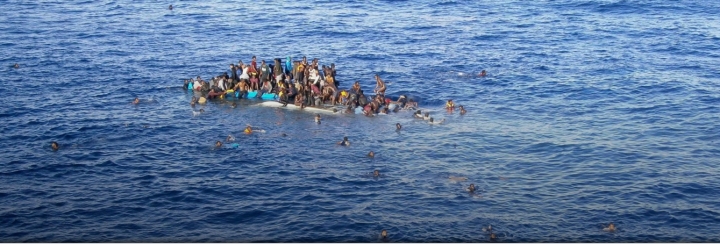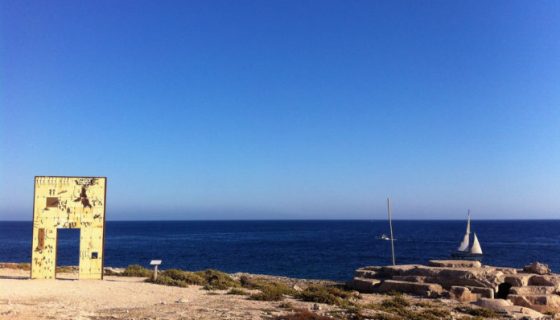- Mediterranean Hope - Federazione delle chiese evangeliche in Italia
- mh@fcei.it
The Horrible Shipwreck That EU Does Not Mention
Daniele Biella – Vita
At least 500 migrants perished in the Mediterranean Sea for whom no national or international authority has proclaimed days of mourning or started investigations or even dedicated a memorial message. Such event is that horrible human loss occurred off the coast of Libya between 15th and 16th April 2016. This event is one of the worst massacres at sea of all time, which, however, took place away from the spotlight and under circumstances that are not very clear. But it undoubtedly occurred, as admitted by the UNHCR. “Our operators met the survivors of what could be one of the worst tragedies of the last 12 months, which have involved refugees and migrants. On April 16th, the 41 survivors – 37 men, 3 women and a 3-year old child – were rescued by a merchant vessel and brought to Kalamata, in the Peloponnese. Among the migrants rescued there are 23 Somalis, 11 Ethiopians, 6 Egyptians and 1 Sudanese. The survivors told us that they were part of a group of 200 people that last week left from a place near Tobruk, in Libya on a 30 meters long boat. After sailing several hours, traffickers tried to move the migrants on a larger boat with hundreds of people that was dramatically overcrowded. Suddenly, during the transfer the largest boat capsized and sank. Among the 41 survivors, there are people who had not boarded the largest boat yet and others migrants who were able to swim back to the smaller one. These ones have been at sea on the smaller boat which was drifting for at least three days before being rescued.”
The stories collected by UNHCR are those of the people rescued who in the meanwhile have arrived to Athens and talked to the journalists. Harrowing are the words the young Ethiopian Muaz Mahmud, who was on the smaller boat, and reported by AFP. “When the traffickers have forced us to move to the largest boat, this one capsized. My 21-year old wife and my 2-month-old daughter sank and many others died. Then, traffickers abandoned us, and for three days we have been on a small ship with a broken engine, without food and water.” According to his account, it was Muaz to find an unexpected solution: We were exhausted, when we found on the bottom of the boat a phone with just a phone number saved, we phoned and the Italian police answered.” he said.
Other survivors have lost brothers, wives, sons, in a despair without end. After an apparent block lasted almost throughout the winter, except for some sporadic departure, these journeys from Libya seem to have started again with great pace. On April 21st the Libyan police discovered two buildings in which 200 migrants from Central Africa were waiting to receive the signal from the traffickers for departure. Who knows how many people are ready to try the Russian Roulette at sea in other building along the Lybian coast. In such a framework, the European Union still does not find a common line to face the continuing deaths in the Mediterranean Sea. If the political focus now has weakly moved on the Migration document promoted by Italy to reach an agreement with those most stable African countries, from the humanitarian point of view, borders are increasingly collapsing and no one talks about the death of the 500 migrants. Once again, only the civil society: dozens of people, volunteers, associations of operators, are joining forces to retrieve information about the last terrible tragedy of the sea. “There are still skeptics positions. And, the number of those who are indifferent will increase. Among us, those are the one we should fear.” said Fulvio Vassallo, Professor of Law and Expert of asylum policies.





